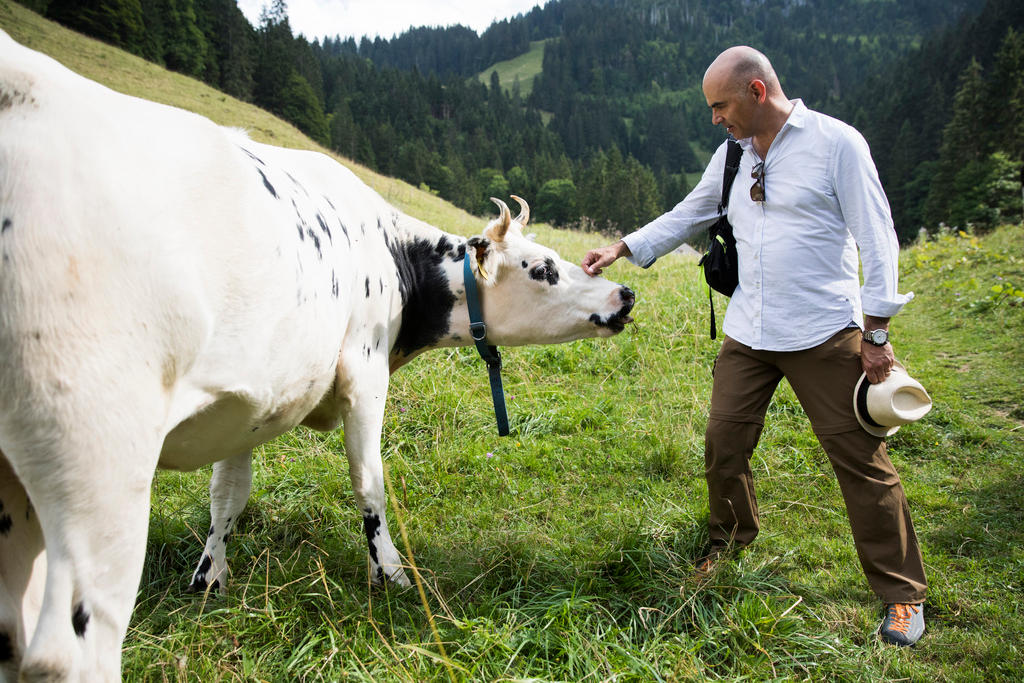
Swiss hay imports peak as dry conditions persist

This year's persistent drought has led to a substantial rise in hay imports into Switzerland. Between January and September, farmers imported more hay than an entire year’s worth since 1995.
On Friday, the agricultural information service (LID) reported hay imports of 179,800 tonnes during the first nine months of the year. This increase in reliance on foreign hay is due to persistent drought that has slowed grass growth and made fodder a scarce commodity, according to LID.
Nine-month hay import figures since 1995:
Die Heu-Importe sind bereits im Oktober so hoch, wie in keinem Jahr zuvor. Die #TrockenheitExternal link zeigt ihre Auswirkungen. https://t.co/bSUYTvdFnjExternal link pic.twitter.com/4qQyetXFpcExternal link
— LID.CH (@LIDnews) October 26, 2018External link
The figures obtained from customs authorities reveal that most of the imports came from neighbouring countries. The largest deliveries came from France (82,918 tonnes) and Germany (61,828 tonnes). These two countries were responsible for 80% of the total hay imports.
Heatwaves in August, led to two Swiss cantons (Vaud and St Gallen) requesting military helicopters to transport water to thirsty cows in remote locations. Farmers had also requested a moratorium on import duties on hay (CHF3 per 100 kilos) to avoid having to dip into their own winter reserves.

More
Swiss farmers appeal for help against the heat

In compliance with the JTI standards
More: SWI swissinfo.ch certified by the Journalism Trust Initiative






























You can find an overview of ongoing debates with our journalists here . Please join us!
If you want to start a conversation about a topic raised in this article or want to report factual errors, email us at english@swissinfo.ch.